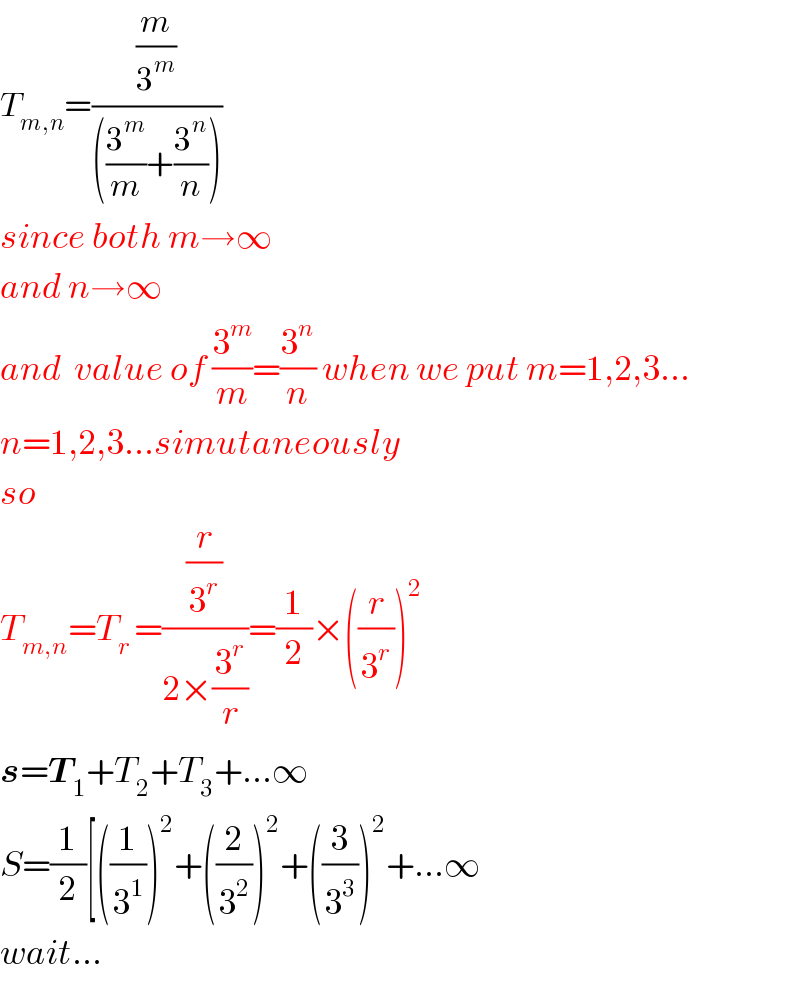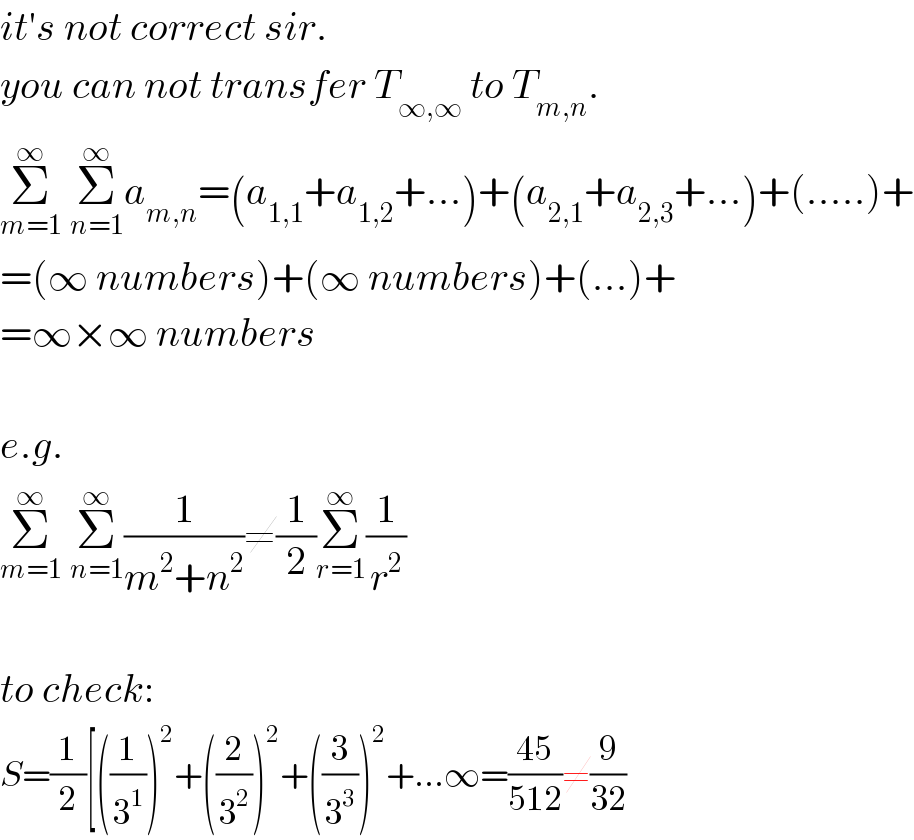
Question and Answers Forum
Question Number 52214 by Tawa1 last updated on 04/Jan/19

Commented by Tawa1 last updated on 04/Jan/19

Commented by mr W last updated on 05/Jan/19

Commented by rahul 19 last updated on 05/Jan/19
Yes Sir! U r right . Just interchange the summation (as they are independent) , call them as EQ. (1) & (2) and add them...��
Commented by Tawa1 last updated on 05/Jan/19

Answered by tanmay.chaudhury50@gmail.com last updated on 05/Jan/19

Commented by mr W last updated on 05/Jan/19

Commented by tanmay.chaudhury50@gmail.com last updated on 05/Jan/19

Answered by rahul 19 last updated on 05/Jan/19
![S = Σ_(m=1) ^∞ Σ_(n=1) ^∞ ((m^2 n)/(3^m (n.3^m +m.3^n ))) S = Σ_(n=1) ^∞ Σ_(m=1) ^∞ ((n^2 m)/(3^n (m.3^n +n.3^m ))) ⇒ 2S = ΣΣ((mn)/(n.3^m +m.3^n ))[(m/3^m )+(n/3^n )]. ⇒2S= Σ_(m=1) ^∞ (m/3^m ) . Σ_(n=1) ^∞ (n/3^n ) ⇒2S= (3/4) × (3/4) ⇒ S = (9/(32 )) .](Q52265.png)
Commented by mr W last updated on 05/Jan/19

